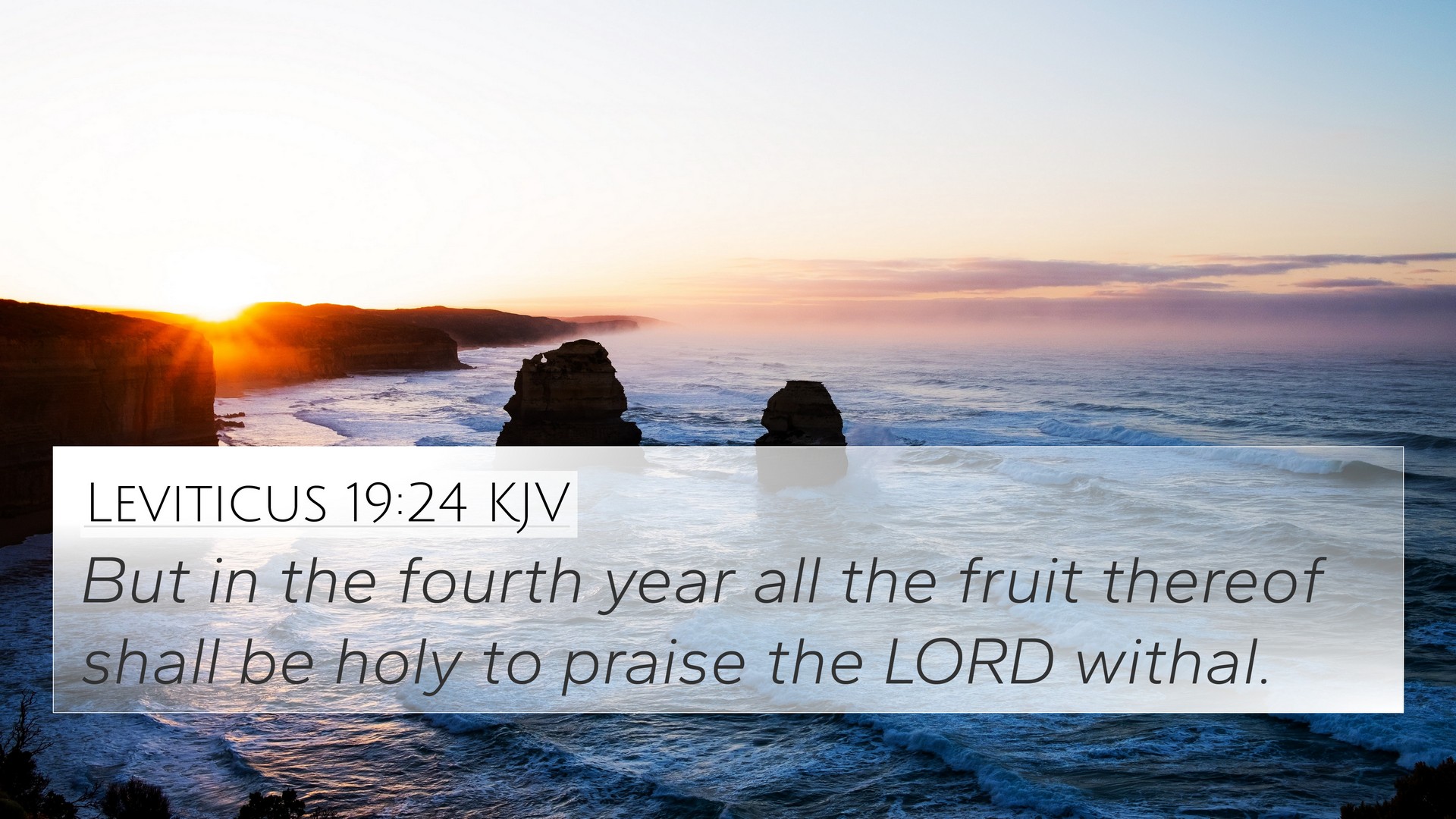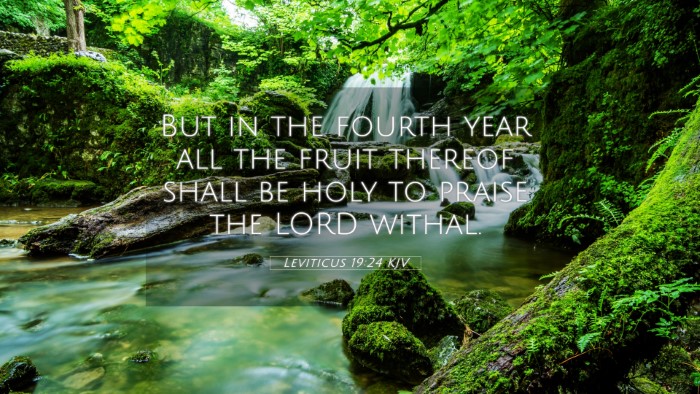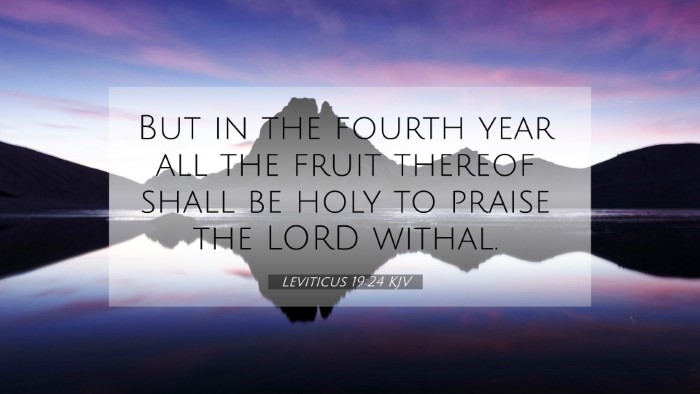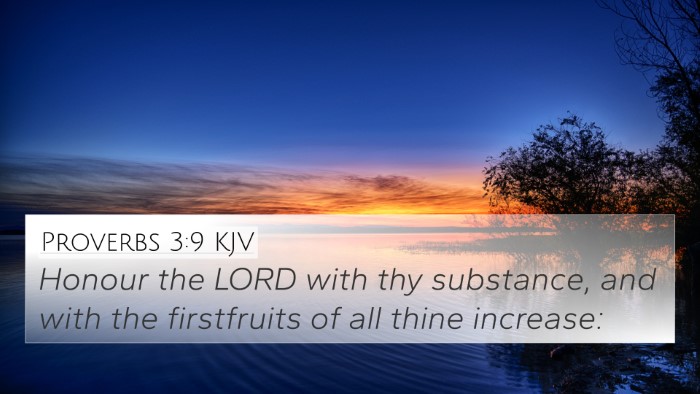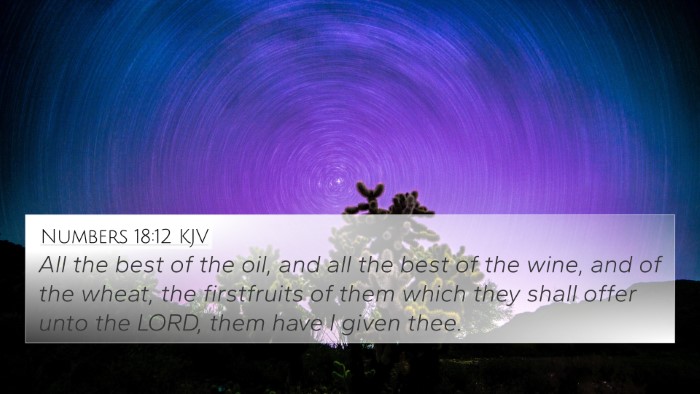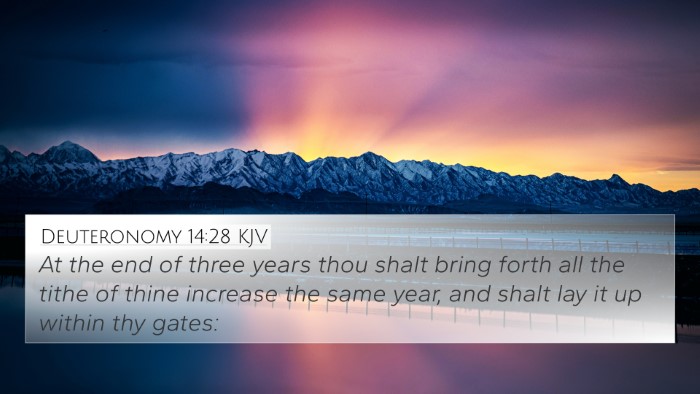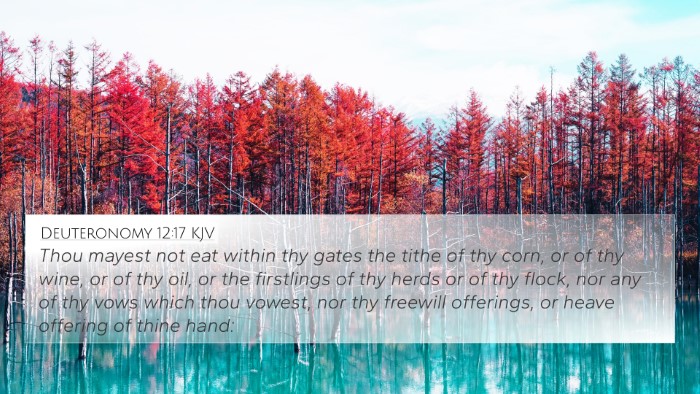Understanding Leviticus 19:24
Leviticus 19:24 states: "But in the fourth year all its fruit shall be holy, an offering of praise to the Lord." This verse provides insight into the laws regarding agriculture and the holiness expected of the Israelites in their dealings with God and creation.
Commentary Insights
Matthew Henry's Commentary
Matthew Henry explains this verse within the context of the agricultural practices commanded to the Israelites. He emphasizes that the first three years' fruit belonged to the owners, but in the fourth year, it was to be dedicated to God as an offering. This practice not only honored God's sovereignty over the earth but also cultivated a spirit of gratitude and acknowledged God's provision.
Albert Barnes' Notes
Albert Barnes elaborates on the significance of the "fourth year" as a divine instruction that emphasizes fruitfulness and devotion. He notes the importance of setting apart the fruits of that year as a holy offering, symbolizing the acknowledgment of God's blessings. This practice encouraged the Israelites to cultivate a lifestyle that reflects thankfulness and dedication to God.
Adam Clarke's Commentary
Adam Clarke comments on the spiritual implications of this directive. He posits that dedicating the first fruits to God serves as a reminder of God’s provision and sustenance. This act of setting apart the produce represents a broader theological principle of holiness and dedication in the lives of believers.
Key Themes in Leviticus 19:24
- Holiness: Emphasizes the call to holiness in everyday life.
- Thanksgiving: Represents an attitude of gratitude towards God’s blessings.
- Dedication: Highlights the importance of dedicating the best of our offerings to God.
- Divine Provision: Acknowledges God's provision through the harvest.
Cross-References
This verse connects with several other scripture passages that deepen its understanding:
- Exodus 23:19: “The best of the first fruits of your ground you shall bring into the house of the Lord your God.”
- Deuteronomy 26:2: “You shall take some of the first of all the fruit of the ground, which you harvest from your land that the Lord your God is giving you.”
- Proverbs 3:9: “Honor the Lord with your wealth and with the firstfruits of all your produce.”
- Malachi 3:10: “Bring the full tithe into the storehouse, that there may be food in my house.”
- Matthew 6:33: “But seek first the kingdom of God and his righteousness, and all these things will be added to you.”
- Romans 12:1: “I appeal to you therefore, brothers, by the mercies of God, to present your bodies as a living sacrifice, holy and acceptable to God.”
- 2 Corinthians 9:7: “Each one must give as he has decided in his heart, not reluctantly or under compulsion, for God loves a cheerful giver.”
Connecting Biblical Themes
The concept of dedicating the fruits of labor to God symbolizes a larger theological theme throughout the Bible, emphasizing how believers should approach their resources and offerings. These principles resonate through both the Old and New Testaments, reflecting an inter-Biblical dialogue focused on holiness, gratitude, and divine trust.
Cross-Referencing Themes
The study of this verse in conjunction with others highlights the importance of integrating scriptural teachings on dedication and fruitfulness. The connections between Bible verses enriches the understanding of God’s expectations for His people.
Tools for Further Study
To dive deeper into the connections between Bible verses, consider utilizing these resources:
- Bible Concordance: Enables word searches to find related verses based on specific terms.
- Bible Cross-Reference Guide: A handy tool for tracing themes and ideas throughout scripture.
- Cross-Reference Bible Study: Engages in comparative studies of scripture passages.
Using Cross-References Effectively
Understanding how to use Bible cross-references can greatly enhance one's personal study. It is essential to take notes on connections, noting how themes of dedication and offerings are treated differently across various texts.
Conclusion
Leviticus 19:24 serves as a reminder of the sacredness of our offerings and the importance of dedicating the best of our labor to God. By examining this verse alongside its cross-references, believers gain a richer understanding of biblical principles concerning holiness, gratitude, and dedication.
